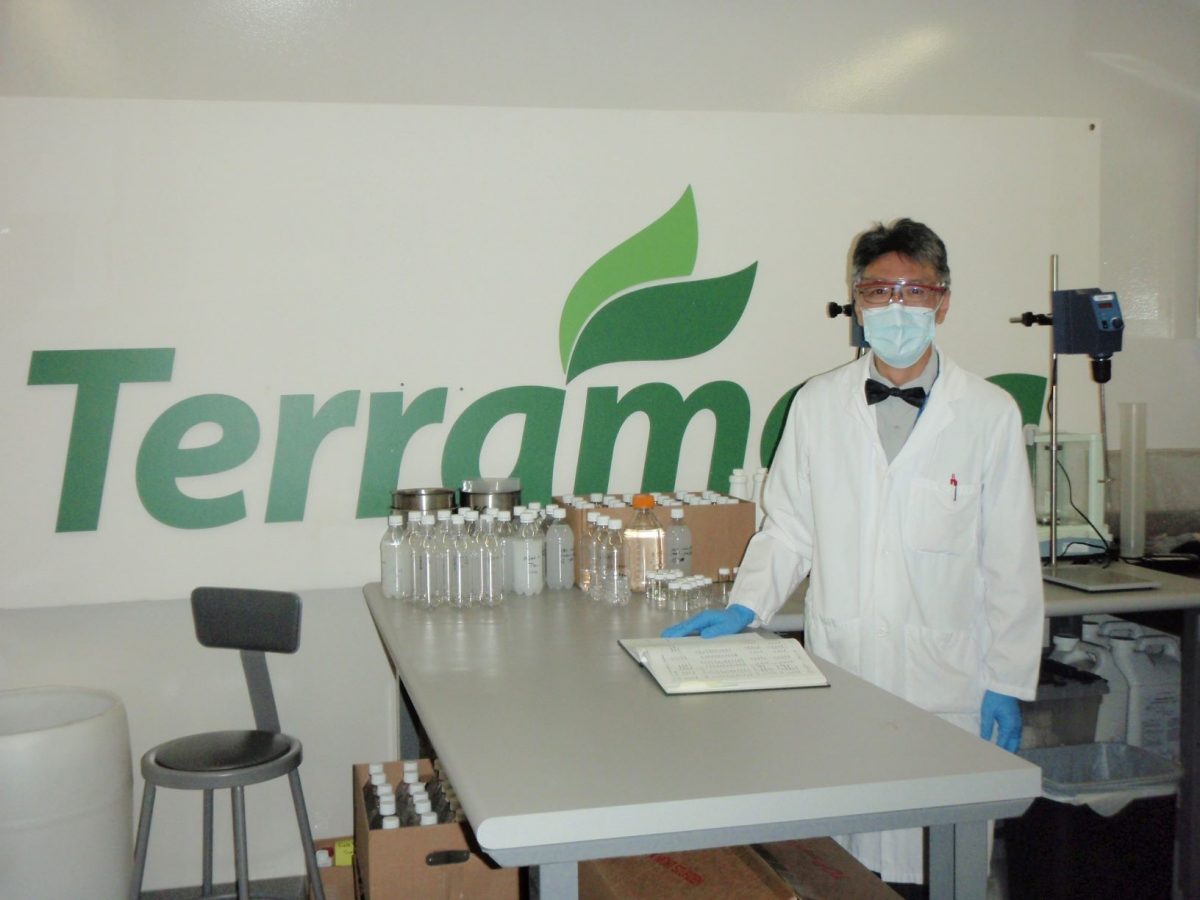BCIT is well known for its connections to industry, which take many forms. This last year, BCIT Chemistry Instructor Jimmy Lowe immersed himself in industry so he could bring a relevant and fresh perspective to his colleagues and students in the classroom. Jimmy embedded with local agricultural technology (“agtech”) company Terramera.
Getting back into a working lab, instead of a teaching lab, means faculty can keep their skills current and prepare students for real jobs in their sector. In Jimmy’s case, he wanted his whole department to benefit. Throughout his work with Terramera, he’s been making presentations and drafting reports to ensure many other faculty benefit from his experience and are able to share with their students.
From teaching chemistry to agtech innovation
Terramera is an award-winning agricultural technology company, its product recognized as a “World Changing Idea.” It reduces the need for synthetic chemical pesticides, and makes organic alternatives more effective. Terramera aims to make farming healthier and more productive by fusing science, nature, and artificial intelligence.
Jimmy is known at BCIT for his pursuit of lifelong learning and process improvement. He’s taken on the role of President at College Chemistry Canada, has used technology to improve chemistry education, and led the “greening” of chemistry labs. So it’s not a surprise that he was keen to get back into a working lab and learn new things to take back to his students.
Jimmy enjoyed the chance to see how equipment and procedures in labs are evolving, both in the lab and outside. Working scientists are using an ever-widening range of technologies for communication, group work, and documentation.
“It was a great learning experience and I enjoyed working with all the members of the Terramera research group,” reports Jimmy. Within the chemistry group, Terramera had scientists working in areas such as formulations, analytical methods, and physical chemistry, which was fantastic for his upskilling.
Terramera has multi-disciplinary areas – biology, entomology, engineering, computing, sales, business – working together, which emphasizes teamwork and communication. “I was participating in weekly scrums and sprints to ensure project deadlines were met, improvements could be identified, and ideas were shared. It definitely reflects the skills we want BCIT students to have,” he said.
Always a teacher: applied education and industry integration
While he was away from the classroom, Jimmy was still able to use some teaching techniques and apply his passion for sustainability. At Terramera Jimmy migrated his greening of chemistry labs, by helping shepherd in expanded recycling activities. “I initiated and implemented a flexible plastic recycling collection program,” he explains, “and it will continue now with other Terramera staff.”
Unsurprisingly, Jimmy wasn’t really away from students for very long. He helped with co-op student mentorship, came back to BCIT as a guest speaker for the Environmental Health program, and did some training of Terramera staff. BCIT Chemistry also had instrumentation and equipment that he was able to use for various projects. A viscometer measured the resistance of solutions to flow. Jimmy used the infra-red (IR) spectrometer on samples to qualitatively identify organic molecules.
“We were pleased to provide a productive professional development experience for Jimmy at Terramera,” reports Pierre Massicotte, Terramera Executive Director, Research and Development. “BCIT’s focus on applied education and integration with industry sets them apart. Encouraging their instructors to pursue development opportunities in the industry supports that, and we are proud to play a part.”
In the end, the experience is essential in that Jimmy has been able to update multiple BCIT Chemistry courses to ensure they reflect what’s happening in a leading-edge workplace.

As a Graduate of the 70’s in Food Technology that was the the program. Although it a little more Industrial biased.
Well done
Everton A Simpson
Thanks Everton for reading this article and commenting. the Food Tech program is full this term as my colleagues are teaching the Chemistry courses.
Stay safe and well, Jimmy
Well-deserved recognition for your many years of dedication to the success of students and BCIT, Jimmy. Always an inspiration!